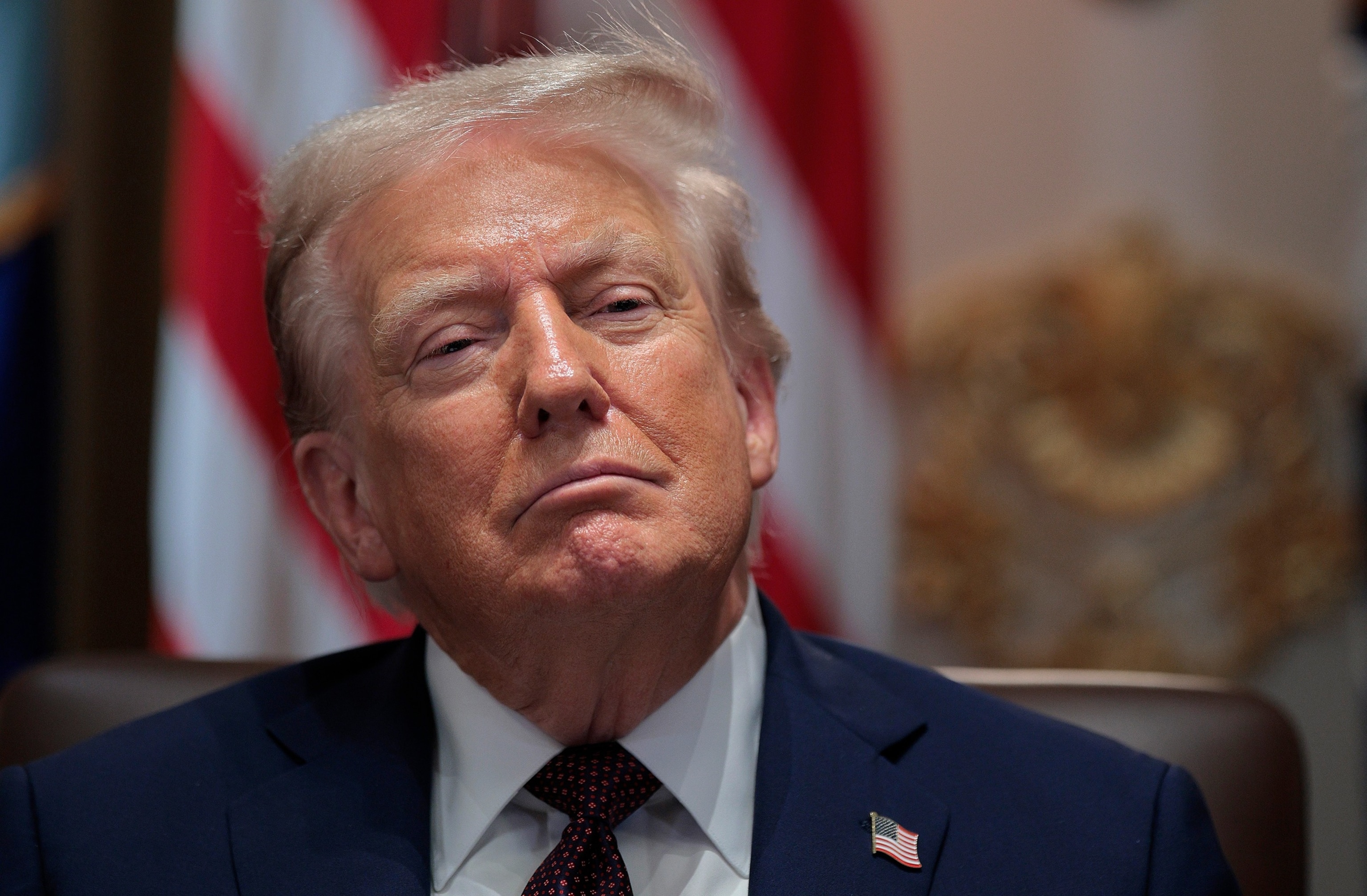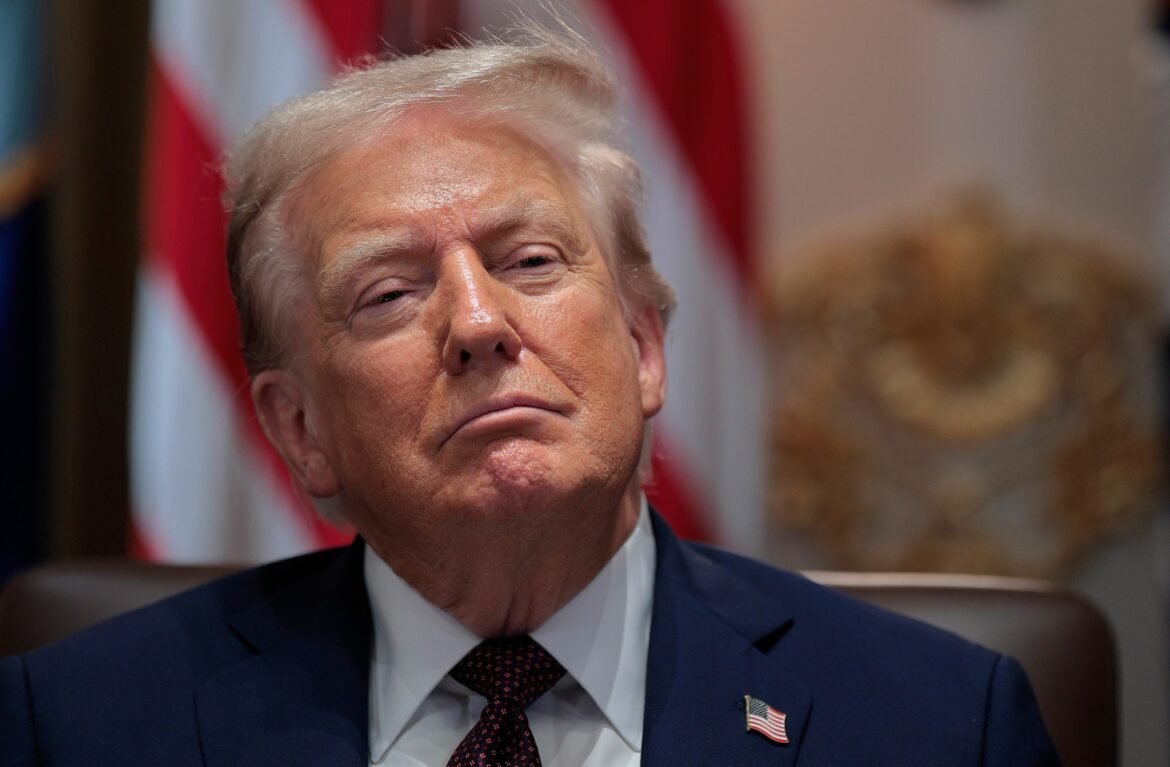A Federal Court of Appeals has ruled that most global tariffs of President Donald Trump are illegal, which can give a significant blow to the president’s effort to remodel the country’s commercial policy unilaterally.
In a 7-4 decision, the United States Court of Appeals for the Federal Circuit rejected Trump’s authority to carry out most of its tariffs, agreeing with the lower court that Trump’s actions were “invalid as contrary to the law.” However, the Court delayed the impact of its decision until mid -October to allow the Trump administration to appeal to the Supreme Court, since the rates remain in force.

President Donald Trump attends a cabinet meeting with members of his administration in the White House Cabinet room, on August 26, 2025 in Washington.
Somodevilla/Getty chip
“Because we agree that [International Emergency Economic Powers Act’s] The granting of the presidential authority to “regulate” imports does not authorize the rates imposed by executive orders, we affirmed, “the majority wrote.
The decision in effect assumes one of the most consistent legal questions for the Supreme Court about the scope of the president’s authority in commercial policy.
After October 14, the Court will return the case to the lower court to decide how the recent decision of the Supreme Court’s decision limits to the national mandates to the decision.
Trump reacts to the decision
In a publication on its social media platform on Friday night, Trump rebuked the decision of the Court of Appeals, warning that a court order that blocks tariffs “would literally destroy the United States of America.”
Antiging the preview of the expected legal challenge in the coming weeks, Trump asked the Supreme Court to declare that he has the power to impose unilaterally tariffs.
“Now, with the help of the United States Supreme Court, we will use them for the benefit of our nation and make the United States again to be rich, strong and powerful! Thank you for your attention to this matter,” Trump wrote.
What the decision says
In his decision on Friday, the Court of Appeals determined that only Congress, not only the President, has the authority to impose tariffs, establishing a legal issue of high profile for the Supreme Court on the scope of the president’s power.
The decision focuses on the authority to “regulate” imports, included in the International Emergency Economic Powers Law, it means that the president can issue tariffs on his own.
Seven of the 11 judges said that the rarely used law does not give Trump the power to implement their “reciprocal” tariffs or the “traffic” rates imposed on Canada, Mexico and China destined to stop the flow of fentanil through US borders, writing that “” rates are a basic power of Congress. “
“We do not discern the clear authorization of the IEEPA Congress for tariffs of the magnitude of reciprocal tariffs and traffic tariffs,” the majority wrote. “Given these considerations, we conclude that Congress, when promulgated IEEPA, did not give the President a wide authority to impose tariffs of the nature of trafficking and reciprocal tariffs simply by the use of the term ‘regulation …’. Import ‘”.
A subset of four judges of the majority led the decision even further, determining that Ieepa does not give Trump the power to issue rates, not only the two types of tariffs in question.
“IEEPA’s interpretation by the Government would be a functionally unlimited delegation of the fiscal authority of Congress,” they wrote.
In a minority opinion, four other judges did not agree, which suggests that Trump’s declaration of a national emergency is sufficient “unusual and extraordinary threat” to justify tariffs.
“IEEPA’s language, as confirmed by its history, authorizes tariffs to regulate import,” the judges wrote.
How the case arose
A group of small businesses and a coalition of states sued to block tariffs earlier this year, arguing that President Trump had exceeded his authority under the law of emergency economic powers rarely used (IEEPA) when he issued a series of rates in April.
The following month, the International Court of New York headquarters declared that the tariffs were illegal and invaded the authority of the Congress to regulate trade. The Trump administration quickly appealed the decision, which was suspended as the legal process was developed.
The United States Court of Appeals for the Federal Circuit heard oral arguments about tariffs in July, during which the judges panel seemed skeptical that Trump could justify tariffs based on a national emergency.
The judges pointed out that IEEPA’s text never explicitly mentions “tariffs” and that no other president has tried to use the law in the same way as Trump.
“One of the main concerns I have is that Ieepa does not mention rates anywhere,” said a judge during the June arguments. “Here, Ieepa doesn’t even say rates, he doesn’t even mention it.”
Before Friday’s decision, the American attorney general John Sauer preventively asked the court to maintain his decision to avoid “serious damage” to the ongoing negotiations and the country’s commercial policy.
Trump administration officials had previously warned that losing the ability to issue tariffs “would lead to dangerous diplomatic shame,” continuous negotiations between Russia and Ukraine threaten, and “threaten the strategic interests of the broader United States at home and abroad.”

